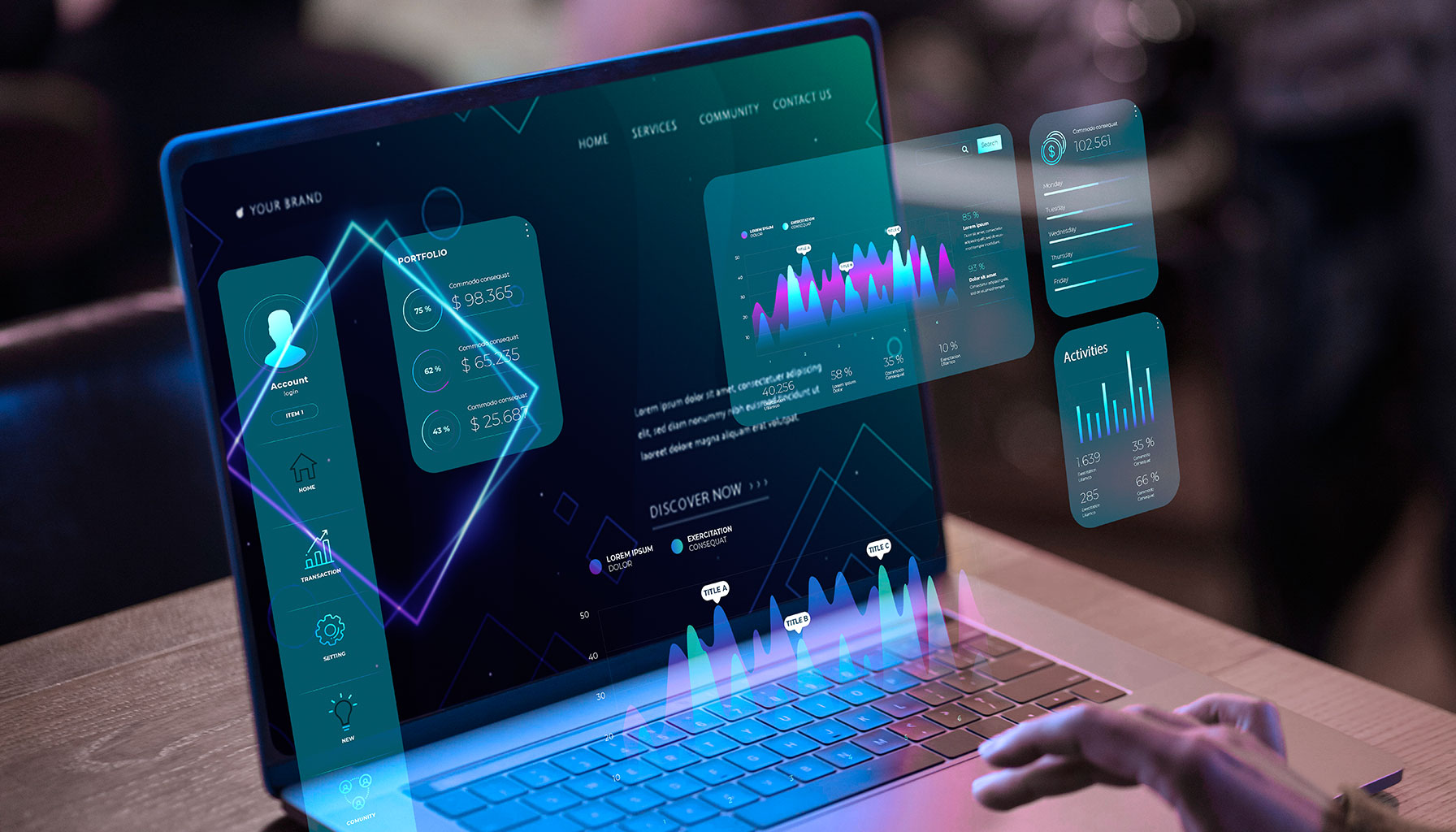Introduction
In an increasingly globalized digital landscape, businesses striving to expand their reach across borders must prioritize multilingual SEO. With the rise of international e-commerce and global marketing, companies need to be visible not only in their native languages but also in the languages of their target markets.
One of the most effective strategies for enhancing search visibility in multiple languages is localized link building. This approach focuses on securing links from local websites and influencers, ensuring that the business gains relevance and authority in various geographical regions.
This article explores the significance of localized link building in multilingual SEO, detailing how it enhances domain authority, boosts search rankings, and ultimately drives targeted traffic to websites. With search engines becoming more sophisticated in assessing content relevance and authority, localized link building emerges as a critical component of a successful SEO strategy.
Building a robust link profile is essential for any website, but in the context of multilingual SEO, the stakes are even higher. A well-executed localized link-building strategy not only improves rankings in local search results but also helps businesses connect with their audiences on a deeper level.
By leveraging local insights and partnerships, companies can create content that resonates with their target demographic, ultimately leading to higher engagement and conversion rates.
In the following sections, we will delve into the various aspects of multilingual SEO, the importance of localized link building, effective strategies for implementation, and how to measure success in these endeavors. The growing competition in the digital realm makes it imperative for businesses to adopt localized link-building practices to stay ahead and achieve sustained growth.
Understanding Multilingual SEO
What is Multilingual SEO?
Multilingual SEO refers to the process of optimizing a website to rank effectively in multiple languages and regions. This encompasses a variety of strategies designed to ensure that a business’s online presence is relevant and accessible to diverse audiences.
Effective multilingual SEO goes beyond mere translation; it requires a deep understanding of the target markets’ cultural nuances, preferences, and search behaviors.
To achieve this, businesses must conduct thorough keyword research in the target languages, identifying keywords that are not only translated but also contextually relevant. It’s essential to recognize that search behaviors can differ significantly from one region to another; thus, the keywords that perform well in one language may not have the same impact in another.
Furthermore, a well-optimized multilingual site must include localized content, ensuring that it resonates with the cultural and linguistic characteristics of the target audience. This may involve adapting images, colors, and messages to align with local traditions and expectations, enhancing the user experience.
Additionally, technical SEO elements, such as hreflang tags, play a crucial role in guiding search engines to the appropriate language and region-specific content. These tags inform search engines about the language and geographical targeting of a webpage, preventing potential issues with duplicate content across multiple language versions.
In summary, multilingual SEO is a multifaceted approach that requires not only linguistic expertise but also a strategic understanding of local markets. Businesses that invest in comprehensive multilingual SEO strategies are more likely to succeed in capturing and retaining the attention of diverse audiences worldwide.
The Role of Localized Link Building
Link building is a critical element of search engine optimization, as it directly influences a website’s authority and visibility in search results. Search engines like Google assess the quality and quantity of backlinks when determining a site’s credibility and relevance.
In the context of multilingual SEO, localized link building takes this concept further by focusing specifically on acquiring links from local websites, influencers, and organizations.
Localized link building is essential because it signals to search engines that a business is relevant to specific geographical areas. For instance, a business targeting the Spanish-speaking market in Mexico will benefit more from backlinks originating from local Mexican websites than from links sourced from general or international sites.
This local relevance not only enhances the website’s authority in the eyes of search engines but also makes it more appealing to local users.
Furthermore, localized links contribute to building a sense of trust and credibility with the target audience. When potential customers see that a business is endorsed by local websites or influencers they recognize, it fosters a sense of reliability and authenticity.
This local validation is crucial for businesses looking to penetrate new markets, as it can significantly impact consumer behavior and decision-making.
Moreover, the effectiveness of localized link building extends beyond SEO benefits. It creates opportunities for genuine connections with local communities, facilitating collaborations and partnerships that can further amplify a brand’s presence.
By engaging with local influencers and websites, businesses can enhance their overall marketing strategy, making it more impactful and culturally relevant.
In conclusion, localized link building is not merely an SEO tactic but a vital component of a comprehensive multilingual marketing strategy. It strengthens a business’s position in local markets, enhances trust with potential customers, and supports broader marketing objectives.
Read more about Benefits of link building
The Importance of Localized Link Building
1. Boosting Domain Authority
Domain authority is a key metric that reflects a website’s overall strength and credibility based on its backlink profile. In the realm of SEO, domain authority is crucial as it influences how search engines rank websites for various keywords. For businesses aiming to improve their rankings in multilingual markets, localized link building plays a significant role in boosting domain authority.
Search engines consider backlinks from other reputable sites as votes of confidence. When a website receives numerous links from local, authoritative sources, it signals to search engines that the site is relevant and trustworthy within that specific market. This is particularly important in multilingual SEO, where businesses must establish their credibility across different languages and regions.
Additionally, localized backlinks tend to carry more weight than generic backlinks. When a local website links to a business, it indicates a level of trust and relevance that generic links may not provide. Local backlinks help create a more focused link profile, enhancing the site’s visibility in local search results.
Moreover, localized link building allows businesses to target specific niches within their industry. For example, a company operating in the eco-friendly product sector can seek backlinks from local environmental organizations, blogs, and news outlets.
This targeted approach not only boosts domain authority but also ensures that the backlinks are contextually relevant, further improving the chances of ranking for localized keywords.
In summary, boosting domain authority through localized link building is a fundamental aspect of multilingual SEO. By securing backlinks from local websites, businesses can enhance their credibility, improve search engine rankings, and ultimately drive more traffic to their sites.
2. Enhancing Search Rankings
Search engine optimization is a multi-faceted discipline that relies on various factors to determine a website’s ranking for specific keywords. Among these factors, backlinks play a pivotal role in signaling authority and relevance. Localized link building is particularly effective in enhancing search rankings, especially for businesses operating in multilingual markets.
One of the primary advantages of localized link building is its ability to improve the relevance of a website in the eyes of search engines. When a business receives backlinks from local websites, it indicates that the content is pertinent to that specific geographic region.
This relevance is crucial for ranking well in local search results, where competition can be fierce.
Furthermore, local backlinks contribute to overall domain authority, which is a critical ranking factor. A website with a strong backlink profile is more likely to rank higher for targeted keywords, as search engines view it as a credible and authoritative source of information.
This is especially important for businesses looking to penetrate new markets where they may not have an established presence.
Localized link building also enhances user engagement metrics, such as click-through rates and dwell time. When local users find content that resonates with them, they are more likely to engage with it, share it, and return for more. This increased engagement signals to search engines that the content is valuable, further improving its ranking potential.
In addition, local backlinks can drive targeted traffic to a website, resulting in higher conversion rates. Visitors arriving via local links are often more interested in the content and offerings, leading to better engagement and a greater likelihood of conversions.
In conclusion, localized link building is a powerful strategy for enhancing search rankings in multilingual SEO. By securing local backlinks, businesses can improve relevance, authority, and user engagement, ultimately driving more traffic and conversions.
3. Establishing Local Presence
Establishing a strong local presence is crucial for businesses looking to succeed in multilingual markets. Localized link building serves as a powerful tool in achieving this objective.
By securing backlinks from local websites, influencers, and community organizations, businesses can create a sense of belonging and credibility within the target market.
A robust local presence not only enhances a company’s visibility in search engines but also builds trust with local audiences. When consumers see that a business is endorsed by local sources, it fosters a sense of authenticity and reliability.
This is particularly important in cultures where personal recommendations and local endorsements carry significant weight in purchasing decisions.
Localized link building also opens doors for collaboration with local influencers and businesses. By engaging in partnerships and sponsorships, companies can tap into existing community networks, enhancing their visibility and credibility. F
or example, sponsoring a local event or collaborating with a community organization can lead to backlinks from their websites, further solidifying the company’s position in the local market.
Moreover, a strong local presence can lead to increased customer loyalty and retention. When consumers feel a connection to a brand that actively participates in their community, they are more likely to become repeat customers.
This loyalty not only benefits the business in terms of sales but also contributes to positive word-of-mouth marketing, which can lead to further local backlinks.
In summary, localized link building is essential for establishing a strong local presence in multilingual SEO. By securing backlinks from local sources, businesses can build trust, foster community engagement, and enhance their overall reputation in the target market.
4. Driving Targeted Traffic
Driving targeted traffic to a website is a primary goal of any SEO strategy, and localized link building plays a significant role in achieving this objective. When businesses focus on obtaining backlinks from local websites and influencers, they can attract a more relevant audience that is likely to engage with their content and convert into customers.
Localized backlinks serve as pathways for potential customers in specific geographical regions. For example, if a local restaurant secures backlinks from popular food blogs or community websites, it will attract users who are specifically interested in dining options in that area.
This targeted approach ensures that the traffic coming to the website is more likely to convert, as visitors are already seeking relevant products or services.
Additionally, localized link building enhances the visibility of content within local search results. When businesses rank higher for localized keywords due to their strong backlink profile, they are more likely to attract users who are actively searching for those terms.
This increased visibility leads to higher click-through rates and more traffic to the website.
Furthermore, local backlinks often come from websites that have a dedicated audience, which can further amplify the reach of a business’s content. When a local influencer or organization shares a business’s website link, it exposes the brand to their established audience, driving additional targeted traffic.
In conclusion, driving targeted traffic through localized link building is a crucial aspect of multilingual SEO. By securing backlinks from local sources, businesses can attract relevant audiences, improve conversion rates, and enhance their overall online presence.
Effective Strategies for Localized Link Building
1. Collaborating with Local Influencers
Collaborating with local influencers is one of the most effective strategies for localized link building. Influencers possess a loyal following, and their endorsement can significantly enhance a brand’s credibility and visibility in a specific market.
To initiate collaborations, businesses should identify influencers who align with their brand values and target audience. This may involve researching social media platforms, blogs, and local publications to find influencers who have established authority in the desired niche.
Once potential influencers have been identified, businesses can approach them with tailored collaboration proposals. This could include sponsored posts, product reviews, or joint social media campaigns that highlight the brand’s offerings.
When influencers feature a business on their platforms, they typically include backlinks to the company’s website, which boosts its authority and relevance in local search results.
Moreover, collaborating with influencers allows businesses to tap into their existing audience, driving targeted traffic to their website. Influencers often have deep connections with their followers, making their recommendations more impactful.
When local audiences see that a trusted influencer endorses a brand, they are more likely to engage with the content and consider making a purchase.
Additionally, partnerships with influencers can lead to ongoing relationships that provide continuous backlink opportunities. By nurturing these collaborations, businesses can establish a steady stream of high-quality backlinks from influential local sources.
In conclusion, collaborating with local influencers is a powerful strategy for effective localized link building. By leveraging their authority and audience, businesses can enhance their online presence, drive targeted traffic, and improve their overall SEO efforts.
2. Engaging with Local Communities
Engaging with local communities is an essential strategy for localized link building. Businesses that actively participate in community events, initiatives, or causes can build strong relationships with local organizations and residents.
This engagement often leads to valuable backlinks from community websites, local news outlets, and social media platforms.
One way to engage with local communities is through sponsorships or partnerships with local events, charities, or organizations. By supporting a community event, businesses can gain recognition and often receive backlinks from the event’s promotional materials, websites, and social media posts.
This not only boosts the company’s visibility but also demonstrates a commitment to the community, which can resonate positively with local audiences.
Additionally, businesses can contribute content to local publications or blogs. Writing guest posts or articles that provide valuable insights or tips related to the community can position a business as an expert in its field.
Local publications often include backlinks to the author’s website, enhancing the business’s online presence.
Furthermore, businesses can engage with local online forums, social media groups, and community pages. By participating in discussions, answering questions, and providing helpful resources, businesses can naturally share links to their website.
This not only drives traffic but also establishes the brand as a trusted resource within the community.
In summary, engaging with local communities is a vital strategy for effective localized link building.
By participating in community events, contributing content to local publications, and interacting on online platforms, businesses can secure valuable backlinks while fostering positive relationships with local audiences.
3. Creating Location-Specific Content
Creating location-specific content is a powerful strategy for localized link building. By developing content that is tailored to specific geographical areas, businesses can attract local audiences and secure backlinks from relevant sources.
This approach enhances the website’s authority and improves its visibility in local search results.
Location-specific content can take various forms, such as blog posts, guides, infographics, and videos. For instance, a business can create a blog post highlighting local attractions, events, or cultural insights that resonate with its target audience.
This type of content not only provides value to local users but also encourages local websites and blogs to link to it, enhancing the business’s backlink profile.
Additionally, businesses can collaborate with local experts or organizations to produce content that highlights regional topics or issues.
For example, partnering with a local historian to create a video series about the history of the area can attract attention from local news outlets and educational websites, leading to valuable backlinks.
Moreover, utilizing local keywords in the content is crucial. By incorporating location-specific keywords and phrases, businesses can optimize their content for local search queries, increasing its chances of ranking well in search engines.
This targeted approach helps attract a more relevant audience, driving traffic and improving engagement metrics.
In conclusion, creating location-specific content is an effective strategy for localized link building. By developing tailored content that resonates with local audiences, businesses can secure valuable backlinks, enhance their authority, and improve their visibility in local search results.
4. Utilizing Local Business Directories
Utilizing local business directories is an effective and often overlooked strategy for localized link building. These directories serve as online hubs where users can find information about businesses operating in their area.
By listing a business in relevant local directories, companies can gain valuable backlinks and improve their visibility in local search results.
To begin, businesses should identify reputable local directories specific to their industry or region. This may include general directories such as Yelp, Yellow Pages, and Google My Business, as well as niche directories related to their particular field.
Listing in these directories not only provides a backlink but also enhances the business’s credibility in the eyes of potential customers.
Moreover, many local directories allow businesses to include detailed information such as addresses, phone numbers, websites, and descriptions of their services.
This information helps potential customers find the business easily and can improve its ranking in local searches. Consistency in listing information across multiple directories is also crucial for local SEO, as search engines prefer consistent data.
Additionally, businesses can encourage customer reviews on these directories. Positive reviews not only enhance a business’s reputation but also improve its visibility within the directory itself. A well-reviewed business is more likely to appear higher in search results, attracting more potential customers.
In summary, utilizing local business directories is a straightforward yet effective strategy for localized link building. By listing in relevant directories, businesses can gain valuable backlinks, enhance their credibility, and improve their visibility in local search results.
Measuring Success in Localized Link Building
1. Tracking Backlink Quality
Tracking the quality of backlinks is crucial for assessing the effectiveness of a localized link-building strategy. Not all backlinks are created equal; some may come from low-quality or irrelevant sources, which can harm a website’s authority and search rankings.
Therefore, businesses should focus on acquiring high-quality backlinks from reputable local websites and influencers.
To track backlink quality, businesses can use various tools, such as Moz, Ahrefs, or SEMrush. These tools provide valuable insights into the authority of linking domains, the relevance of the content, and the overall quality of the backlinks.
By analyzing these metrics, businesses can determine which backlinks are contributing positively to their SEO efforts and which may need to be disavowed.
Additionally, monitoring the anchor text used in backlinks is essential. The anchor text should ideally include relevant keywords that reflect the content being linked to, as this signals to search engines the context of the link.
Diverse and contextually relevant anchor text helps to build a natural backlink profile and can improve search rankings.
Furthermore, businesses should assess the impact of their localized link-building efforts on overall website performance. This includes tracking organic search traffic, keyword rankings, and engagement metrics such as bounce rates and time on page.
By correlating backlink acquisition with improvements in these metrics, businesses can better understand the effectiveness of their link-building strategies.
In conclusion, tracking backlink quality is a vital aspect of measuring success in localized link building. By focusing on high-quality backlinks and analyzing their impact on website performance, businesses can refine their strategies and enhance their overall SEO efforts.
2. Monitoring Website Traffic
Monitoring website traffic is a key indicator of the success of localized link-building strategies. When businesses secure high-quality backlinks from local sources, they can expect to see an increase in targeted traffic to their website.
Tracking these changes helps assess the effectiveness of link-building efforts and refine future strategies.
Using web analytics tools, such as Google Analytics, businesses can gain valuable insights into their website traffic. By examining metrics such as the number of visitors, referral sources, and user behavior, companies can identify patterns and trends related to their link-building activities.
For example, if a significant spike in traffic occurs after securing a backlink from a local influencer or community website, it indicates that the link has successfully attracted local users.
Additionally, businesses should monitor the geographic location of their website visitors. By analyzing where the traffic is coming from, companies can assess the effectiveness of their localized link-building efforts in specific regions.
This information helps businesses understand which markets are responding positively to their strategies and where further efforts may be needed.
Furthermore, monitoring traffic behavior can provide insights into user engagement. Businesses should track metrics such as bounce rates, time on site, and pages per session to gauge the quality of traffic being driven by local backlinks.
High engagement rates indicate that the content is resonating with the audience, suggesting that the link-building strategy is effective.
In summary, monitoring website traffic is essential for measuring the success of localized link building. By analyzing traffic patterns and user behavior, businesses can gain insights into the effectiveness of their strategies and make data-driven decisions for future link-building efforts.
3. Evaluating Keyword Rankings
Evaluating keyword rankings is a critical component of measuring the success of localized link-building strategies. Securing high-quality backlinks from relevant local sources can significantly improve a business’s visibility for localized keywords in search engine results.
By tracking these rankings, businesses can assess the effectiveness of their link-building efforts and make informed decisions for future strategies.
To monitor keyword rankings, businesses can use SEO tools such as SEMrush, Moz, or Ahrefs. These tools allow companies to track their position for specific keywords over time, providing insights into how backlinks influence search rankings.
For example, if a business notices an improvement in rankings for local keywords after acquiring backlinks from local blogs or influencers, it indicates that the link-building strategy is effective.
Moreover, businesses should focus on tracking rankings for long-tail keywords that are specific to their geographical area. These keywords often have less competition and can drive highly targeted traffic to the website.
By optimizing content for these keywords and securing backlinks that reinforce their relevance, businesses can improve their chances of ranking higher in search results.
Additionally, evaluating the rankings of competitor websites can provide valuable insights. By analyzing the backlink profiles of competitors, businesses can identify opportunities to acquire similar high-quality backlinks.
This competitive analysis can help refine link-building strategies and enhance overall SEO efforts.
In conclusion, evaluating keyword rankings is crucial for measuring the success of localized link building. By tracking keyword performance and assessing the impact of backlinks, businesses can make data-driven decisions to improve their SEO strategies and achieve better visibility in local search results.
4. Assessing Overall Domain Authority
Assessing overall domain authority is an essential aspect of measuring the success of localized link-building efforts. Domain authority (DA) is a score that predicts how well a website will rank on search engine result pages (SERPs).
By improving domain authority through localized backlinks, businesses can enhance their online visibility and search performance.
To assess domain authority, businesses can use tools like Moz, Ahrefs, or SEMrush. These tools provide a score ranging from 1 to 100, with higher scores indicating a greater likelihood of ranking well in search results.
As businesses engage in localized link building, they should monitor changes in their domain authority over time to evaluate the effectiveness of their strategies.
A significant increase in domain authority often correlates with the acquisition of high-quality backlinks from reputable local sources. These backlinks contribute to the overall strength of the website and signal to search engines that the content is trustworthy and relevant.
As domain authority improves, businesses are more likely to rank higher for both localized and general keywords.
Furthermore, comparing domain authority with competitors can provide valuable insights. If a business’s domain authority is increasing while competitors remain stagnant, it indicates that the link-building strategy is effectively enhancing the business’s online presence.
Conversely, if competitors are gaining authority more rapidly, it may signal a need to refine link-building efforts to remain competitive.
In summary, assessing overall domain authority is crucial for measuring the success of localized link building.
By monitoring changes in domain authority and understanding its impact on search rankings, businesses can make informed decisions to enhance their SEO strategies and improve their online visibility.
Conclusion
Localized link building is a vital strategy for businesses seeking to improve their multilingual SEO efforts. By focusing on acquiring backlinks from local websites and influencers, businesses can boost their domain authority, enhance their visibility in local search results, and drive targeted traffic to their websites.
Engaging with local communities, creating location-specific content, and leveraging social media platforms are all effective strategies for building a robust localized backlink profile.
As businesses expand into diverse markets, understanding the nuances of local SEO becomes increasingly important.
By implementing effective localized link-building strategies and continuously monitoring their performance, businesses can position themselves for long-term success in the competitive online landscape.





